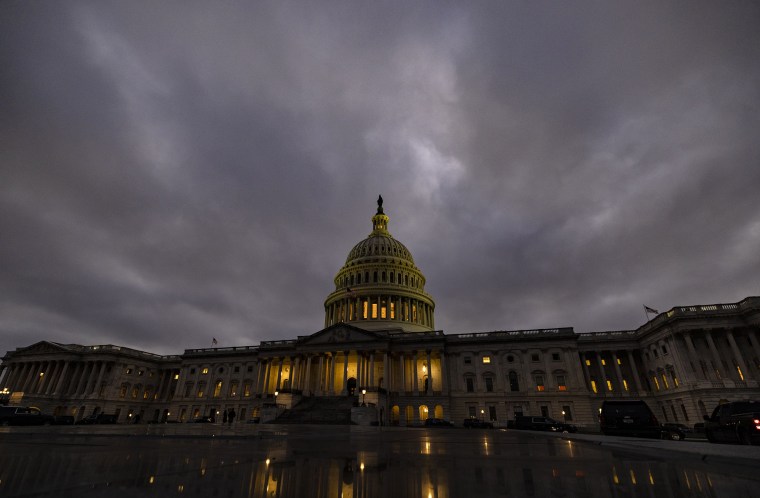Ten days ago, on the heels of the House approving a bipartisan plan to create a Jan. 6 commission, the Washington Post published a headcount that raised proponents' hopes. By the newspaper's tally, there were seven Senate Republicans who expressed tacit interest in the proposal, and with just three more votes, success was a distinct possibility.
One of the seven was Sen. Mike Rounds (R-S.D.), who conceded the United States "clearly had an insurrection" on Jan. 6, and he didn't to see the violence "swept under any rug."
One day later, the South Dakota Republican changed his mind, explaining that GOP leaders had told him the bipartisan plan wasn't quite bipartisan enough.
It was emblematic of how the process unfolded. Republicans said they were open to the creation of an independent commission, but only if their demands were met. Democrats, willing to pay high prices in the interest of governing, met those demands, only to have House GOP lawmakers balk anyway.
Today, Senate Republicans did the same thing.
Senate Republicans blocked legislation on Friday that would create an independent commission to investigate the Jan. 6 attack on the U.S. Capitol. The vote was 54 in favor and 35 against — short of the 60 needed to proceed.
In the end, six GOP senators ended up breaking ranks and siding with Democrats in support of the proposal: Alaska's Lisa Murkowski, Ohio's Rob Portman, Nebraska's Ben Sasse, Louisiana's Bill Cassidy, Utah's Mitt Romney, and Maine's Susan Collins.
I can appreciate why the procedural details may seem boring and unimportant, but it's worth emphasizing that this was technically not the vote to create the Jan. 6 commission. Rather, this was a procedural vote on something called a motion to proceed -- which in practical terms means Republicans blocked a Senate debate over whether to create the Jan. 6 commission.
For those unfamiliar with congressional procedures, it's probably also worth noting that the gap between the opponents and proponents was less important than it might appear: proponents of the bipartisan plan needed 60 votes. Period. Full stop. The fact that most senators supported the proposal is, thanks to the filibuster rules, irrelevant. In fact, if only 60 senators showed up for today's vote, and 59 of them voted "yes," the one "no" vote would prevail.
This is the first bill of this Congress to fail as a result of a Republican filibuster.
It's tempting to think this would've been one of the year's easiest decisions. We are, after all, talking about U.S. senators agreeing to begin an independent investigation into a violent attack on their own country's seat of government -- which happens to be their own workplace. It was the most serious attack on our Capitol in two centuries, and an independent investigation could give policymakers real answers, not just about what transpired and why, but also on how to prevent future bloodshed.
And yet, Republicans have peddled evolving rationalizations and excuses to oppose the bipartisan plan, despite the fact that Democrats already agreed to the changes GOP leaders sought.
There is no great mystery as to why. Mitt Romney said yesterday that if his party blocked the plan it would be "seen as not wanting to let the truth come out."
Of course, it would be seen that way because it is that way. For all intents and purposes, Americans are witnessing a cover-up: Republicans believe an independent examination of an insurrectionist riot would do damage to their party and their electoral prospects, and so they shut down the possibility of such a review.
The truth would be politically inconvenient, so the prospects for uncovering the truth needed to end. From a purely partisan perspective -- and for most congressional Republicans, no other perspective matters -- a serious study of the Capitol attack offered high risks and few rewards. As such, most GOP lawmakers, fearing no consequences, made what they saw as the obvious call, propriety be damned.

